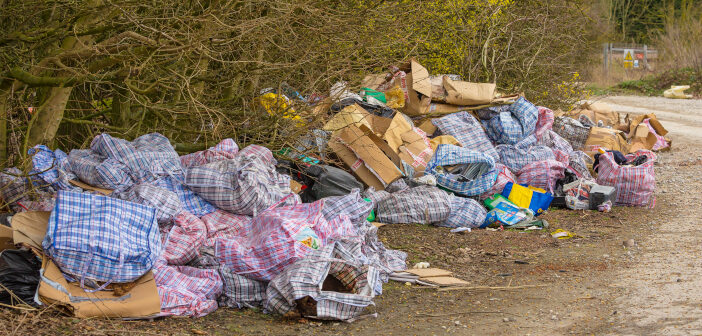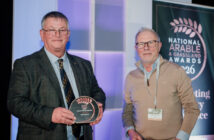Defra statistics on fly-tipping are still too high, and further action needs to be taken to ensure that farmers don’t suffer the consequences believe the NFU
It comes in response to the latest report from Defra, outlining fly-tipping statistics from 2022 to 2023. It shows general decreases across the board, with overall cases down 1% to 1.08 million, a 3% decrease in tips including household waste to 653, 000, and a 7% decrease in highway tipping incidents to 433,000.
See also: New study shows soil health benefits of regen agriculture
However, NFU vice president David Exwood, said that overall, the figures are still too high and reveal a “concerning upward trend” that has emerged over the last five years. He also believes that the figures could actually be a lot higher than those reported, as the survey failed to take into account private landowners.
“Fly-tipping continues to be a huge problem and one that plagues the lives of so many of us living and working in the countryside. Items such as worn out tyres, battered old fridges and bags of rubble are commonplace,” he said.
“But more and more our farms are being strewn with kitchen appliances, sofas and increasingly, industrial-scale amounts of rubbish such as builder’s rubble and hazardous materials.”
He emphasised the effect that this can have both on farmer’s abilities to produce food and look after the environment, as well as the toll these problems can have emotionally and financially. Statistics by the Environment Agency earlier in 2023 showed an increase in the negative effects of illegal waste crime, with 86% of farmers and landowners surveyed saying they were affected.
Mr Exwood did praise the government’s initiatives to try and tackle the issue, commenting on the increase of the fly-tipping fine from £400 to £1000 as part of its Antisocial Behaviour Plan, and the funding of a new fly-tipping post in the National Rural Crime Unit.
He concluded by saying that the NFU believed more could be done to promote the household duty of care, ensuring more were aware of their responsibility for waste disposal. They also want to see accreditation for all council enforcement officers, giving them enhanced “police-style powers” to tackle fly-tipping and littering.




